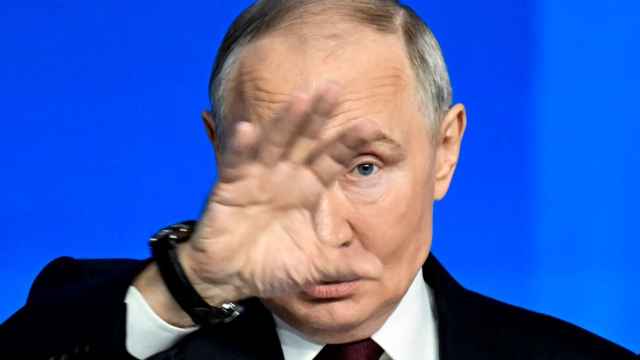Former Soviet leader Mikhail Gorbachev says the popular revolts in Egypt and Tunisia are a warning that democratic freedoms cannot be traded for a facade of political stability or economic growth.
"For too long, conventional political thinking about the Arab world was based on a false dichotomy: authoritarian regimes or fundamentalism, extremism, terrorism," Gorbachev said in an opinion article in the International Herald Tribune on Wednesday.
Gorbachev, whose bold reforms helped trigger the 1991 collapse of the Soviet Union, said such fears were based on "mistrust" of people in Arab nations, and that demands for more freedom would not necessarily bring chaos or fundamentalism.
"The people who filled Tahrir Square in Cairo and the streets of other Egyptian cities wanted to end this charade. I am sure that most of them equally abhor authoritarianism and extremism, religious or otherwise," he wrote.
"The people have spoken and made clear that they do not want to live under authoritarian rule and are fed up with regimes that hold power for decades."
Gorbachev's article was titled "Egypt's agonizing choice" and made no specific mention of Russia, where Kremlin critics say Vladimir Putin has rolled back post-Soviet democratic advances since he came to power in 2000.
Gorbachev has likened Putin's dominant United Russia party to the Soviet Communist Party and said last year that the Kremlin's economic modernization drive will not succeed without improvements in democracy and the electoral system.
The Nobel Peace laureate, who turns 80 next month, called the unrest now sweeping the Arab world a "warning" to autocratic leaders the world over, saying: "They must understand it can't last forever."
"In the end the voice of the people will be decisive," he said.
He said that "power without accountability" was unsustainable, despite what observers have described as a modern-day social contract: a trade-off of human rights in exchange for economic growth.
A Message from The Moscow Times:
Dear readers,
We are facing unprecedented challenges. Russia's Prosecutor General's Office has designated The Moscow Times as an "undesirable" organization, criminalizing our work and putting our staff at risk of prosecution. This follows our earlier unjust labeling as a "foreign agent."
These actions are direct attempts to silence independent journalism in Russia. The authorities claim our work "discredits the decisions of the Russian leadership." We see things differently: we strive to provide accurate, unbiased reporting on Russia.
We, the journalists of The Moscow Times, refuse to be silenced. But to continue our work, we need your help.
Your support, no matter how small, makes a world of difference. If you can, please support us monthly starting from just $2. It's quick to set up, and every contribution makes a significant impact.
By supporting The Moscow Times, you're defending open, independent journalism in the face of repression. Thank you for standing with us.
Remind me later.





